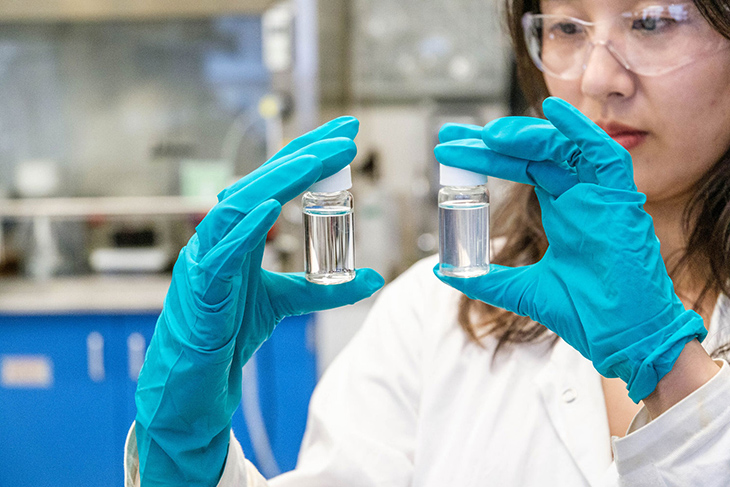
Combining sawdust and polyphenols yields an extraordinary innovation: a water filtration system capable of eliminating a staggering 99.9% of microplastics. This achievement is no laughing matter, given the ominous health implications associated with microplastic ingestion, although our understanding of these effects is still in its infancy.
Microplastics, tiny plastic particles, pervade the globe, descending from as high as the jet stream and infiltrating the deepest ocean trenches and even the most remote mountain peaks. In response to this growing concern, researchers embarked on a quest to devise more effective methods for filtering out these minuscule plastic invaders from our water sources.
Their quest led them to explore the remarkable properties of wood and other plant materials. What they discovered was not only astonishing but also economically viable, with the potential for limitless scalability. The resultant water filter, dubbed “bioCap” by its inventors, primarily consists of sawdust, comprised of cellulose, hemicellulose, and lignin. Initially, sawdust alone proved to be a rather subpar filter, removing a mere 10% of micro and nanoparticles of plastic.
However, the game-changer came in the form of polyphenols, particularly tannic acid, a defense compound ubiquitous in plants devoid of underground root systems. When introduced into the filter, these polyphenols triggered a transformation. They forged robust molecular bonds with polymer particles, including various microplastics, and remarkably, these bonds remained unyielding even after undergoing multiple rounds of filtration.
To put the bioCap filter to the ultimate test, a comprehensive array of commonly encountered plastic polymers from packaging materials, synthetic textiles, and construction products was subjected to the filtration process, with micro and nano-sized particles being the targets. The results were nothing short of remarkable, underlining the potential of this innovative approach to tackle the pervasive problem of microplastic contamination in our water sources.
“By taking advantage of the different molecular interactions around tannic acids, our bioCap solution was able to remove virtually all of these different microplastic types,” said Orlando Rojas. He is one of the study’s corresponding authors.
He informed his university’s press office that during an experiment aimed at eliminating particles measuring a mere 110 nanometers in diameter, which have been observed to traverse the blood-brain barrier, a reduced quantity of these particles was observed to accumulate within the internal organs of mice that had been exposed to liquid contaminated with microplastics.
“Most solutions proposed so far are costly or difficult to scale up,” Rojas said. “We’re proposing a solution that could potentially be scaled down for home use or scaled up for municipal treatment systems.”
He highlights the readily available nature of bark, sawdust, and leaves, which can be sourced from virtually any location on Earth where an entrepreneur considers establishing a production line for these water filters.
What are your thoughts? Please comment below and share this news!
True Activist / Report a typo


